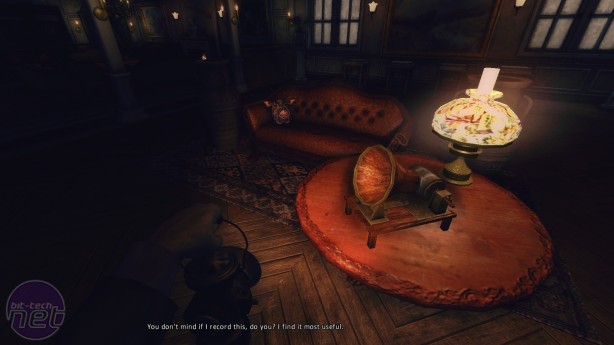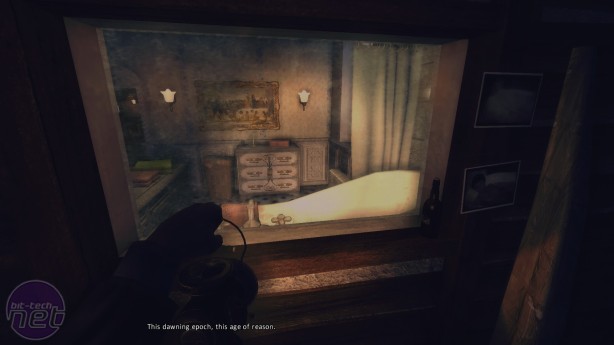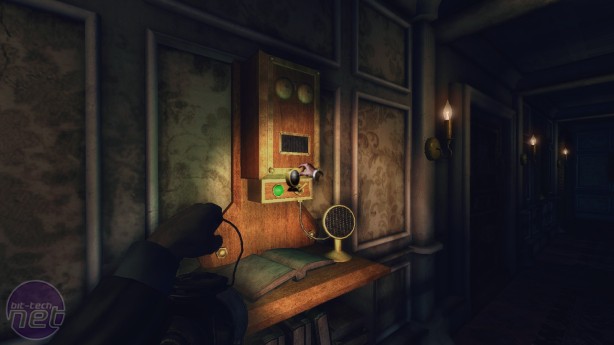Amnesia: A Machine For Pigs Review
September 9, 2013 | 15:08
Companies: #thechineseroom #thechineseroomroom

Amnesia: A Machine For Pigs Review
Price: £12.99Developer: TheChineseRoom
Publisher: Frictional Games
Platform(s): PC
Amnesia: The Dark Descent was one of the best horror games ever made, and there are three clearly identifiable aspects of it which led to that success. Despite using the oldest videogame plot device in the book, it weaved a fantastically grim tale about a gentle-voiced man named Daniel who, in a desperate bid to stop some supernatural monstrosity eating his soul or whatever, himself became more of a monster than the lovechild of Hitler and Emperor Palpatine. It was also more bowel-quaking than a toilet full of wasps, and it featured several brilliant mechanics which both aided the game's sense of exploration and complemented the terror threaded through the setting, story and atmosphere.
A Machine For Pigs, the indirect sequel to the Dark Descent developed by Dear Esther creators TheChineseRoom, successfully grasps the first two roots of the previous game's greatness, but falls short on the third, and the result is a well told, deeply unsettling tale that nevertheless feels like an evolutionary step backward for the series.
That doesn't mean it's a disaster. There's plenty of good stuff to talk about (relatively speaking, this is Amnesia after all) so we'll do that first. The game puts you in the shoes of Oswald Mandus, a late Victorian industrialist, philanthropist and explorer; the kind of man who has an upper lip so stiff he could fight off entire African tribes with nothing but his moustache. At least, that's what he used to be like, until a trip to Mexico went so badly wrong it blew a blunderbuss-sized hole in his memory. Waking in his bed at home in London, Mandus begins to search his mansion for his children, and discover the source of the interminable mechanical howling that shakes the entire industrial complex on which he lives.
Plotting and writing a game like this is an enormously difficult task. It's obvious from the very beginning that what lies ahead for Mandus isn't cupcakes and a hug from Barney the Dinosaur. But A Machine For Pigs manages to surprise by both the scale and the extent of the nefarious goings-on in Mandus' mansion and the nearby village. It also drip-feeds this information to you in deliciously subtle and ambiguous ways. Early on in the game, while still exploring the house, you discover passages that hold one-way mirrors into bedrooms and bathrooms. Is Mandus, the paragon of the Victorian man, a voyeur? Or does that dubious honour belong to someone else in the house?
More of the narrative is unveiled through notes scattered around the house, gramaphone-recordings, and Mandus' own journal entries, which also act as clues to some of the game's puzzles. The puzzles are actually pretty simple, but it's still a nice touch. The writing is typically Pinchbeck - a touch Literature student - but still a thousand miles ahead of 90% of all other videogame writing. Plus, the floweriness fits with the game's character, and is delivered convincingly by the voice-actors.
It's also, true to form, absolutely terrifying. A Machine For Pigs has an atmosphere thicker than Jupiter. The combination of environments drenched in shadow and a musical score that swells like a sprained ankle makes the game constantly feel as if it's leading to something horrible, even when it isn't.

MSI MPG Velox 100R Chassis Review
October 14 2021 | 15:04












Want to comment? Please log in.